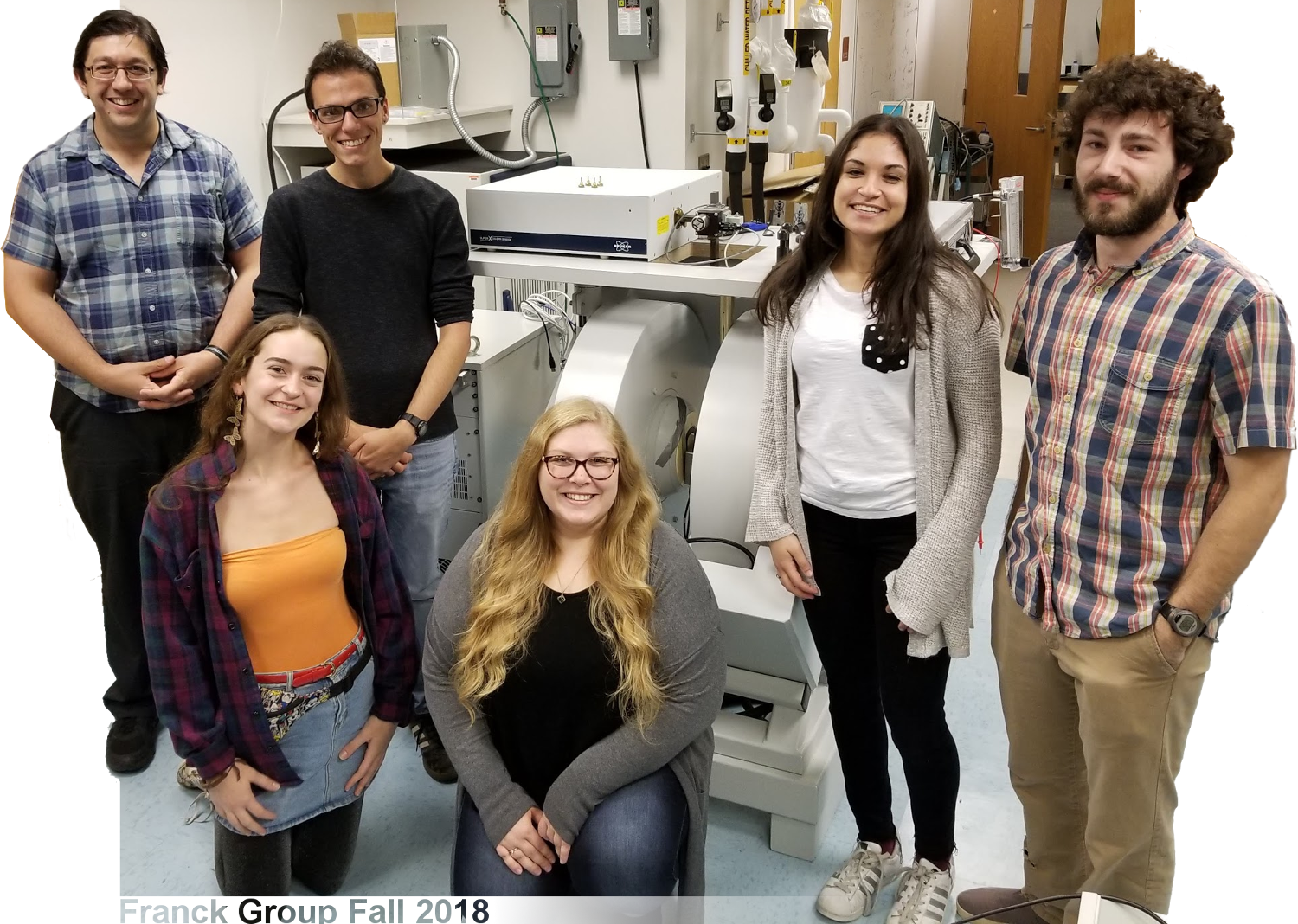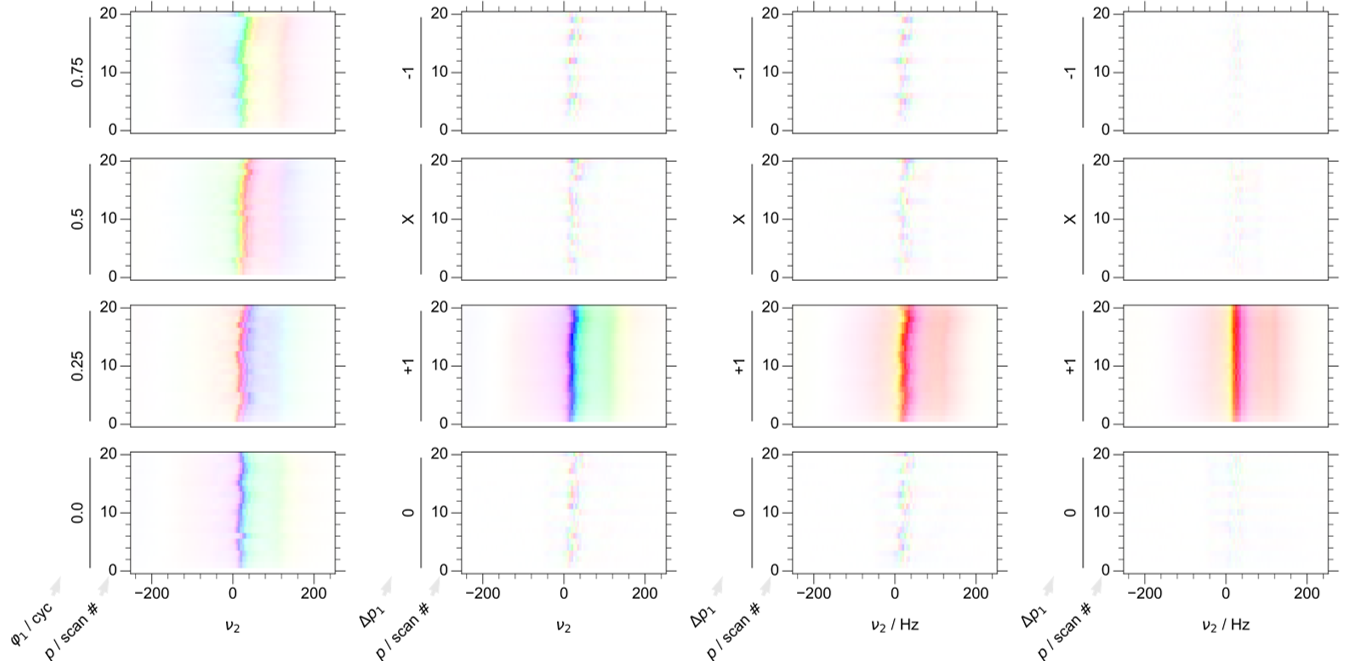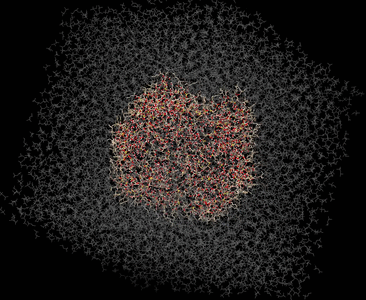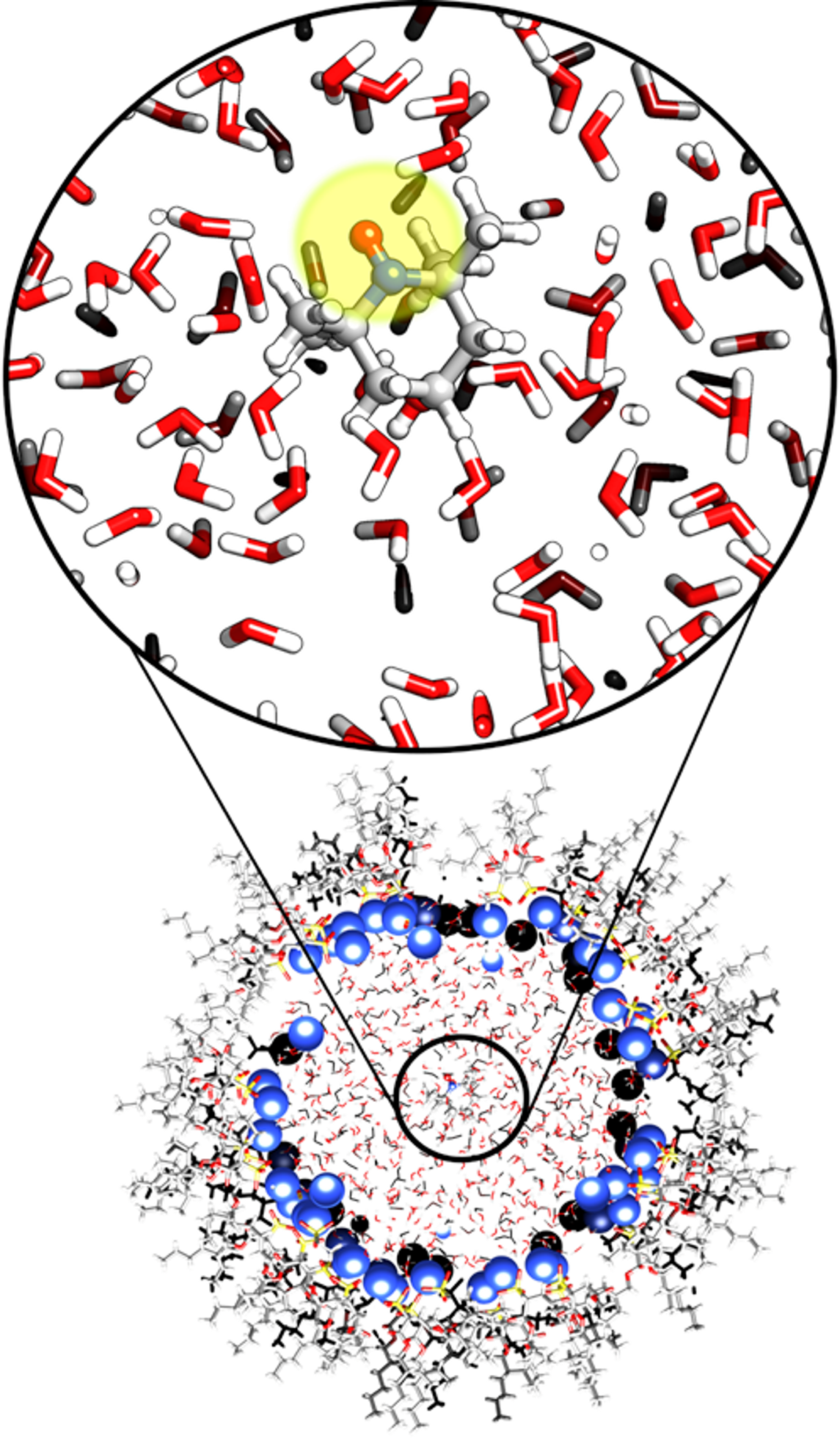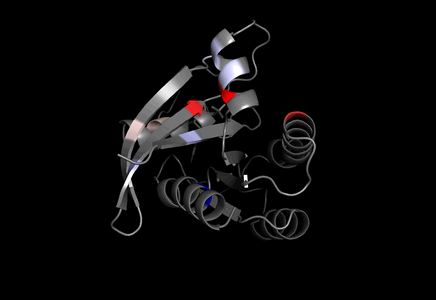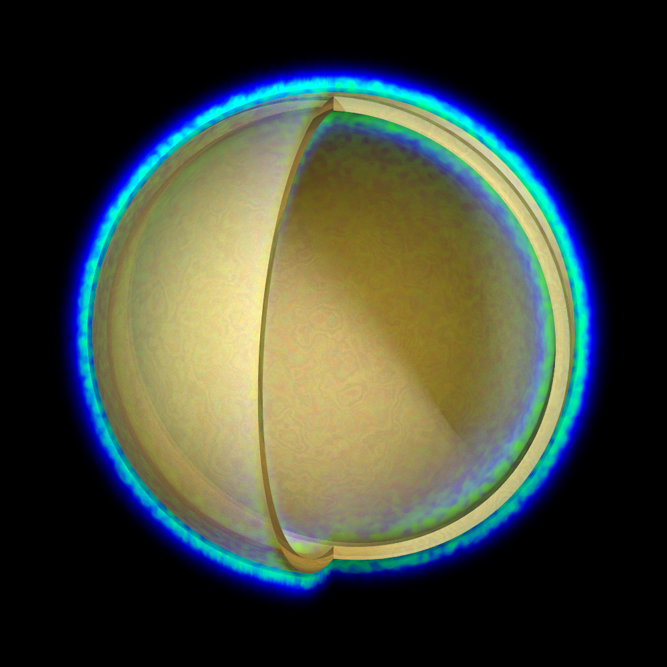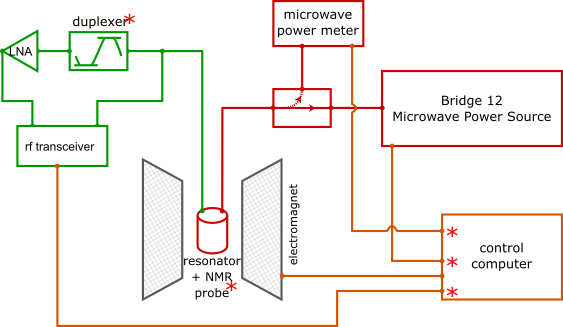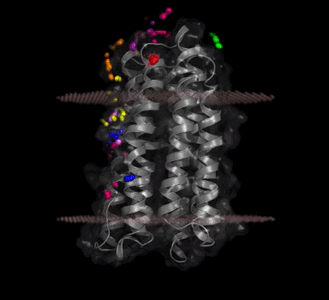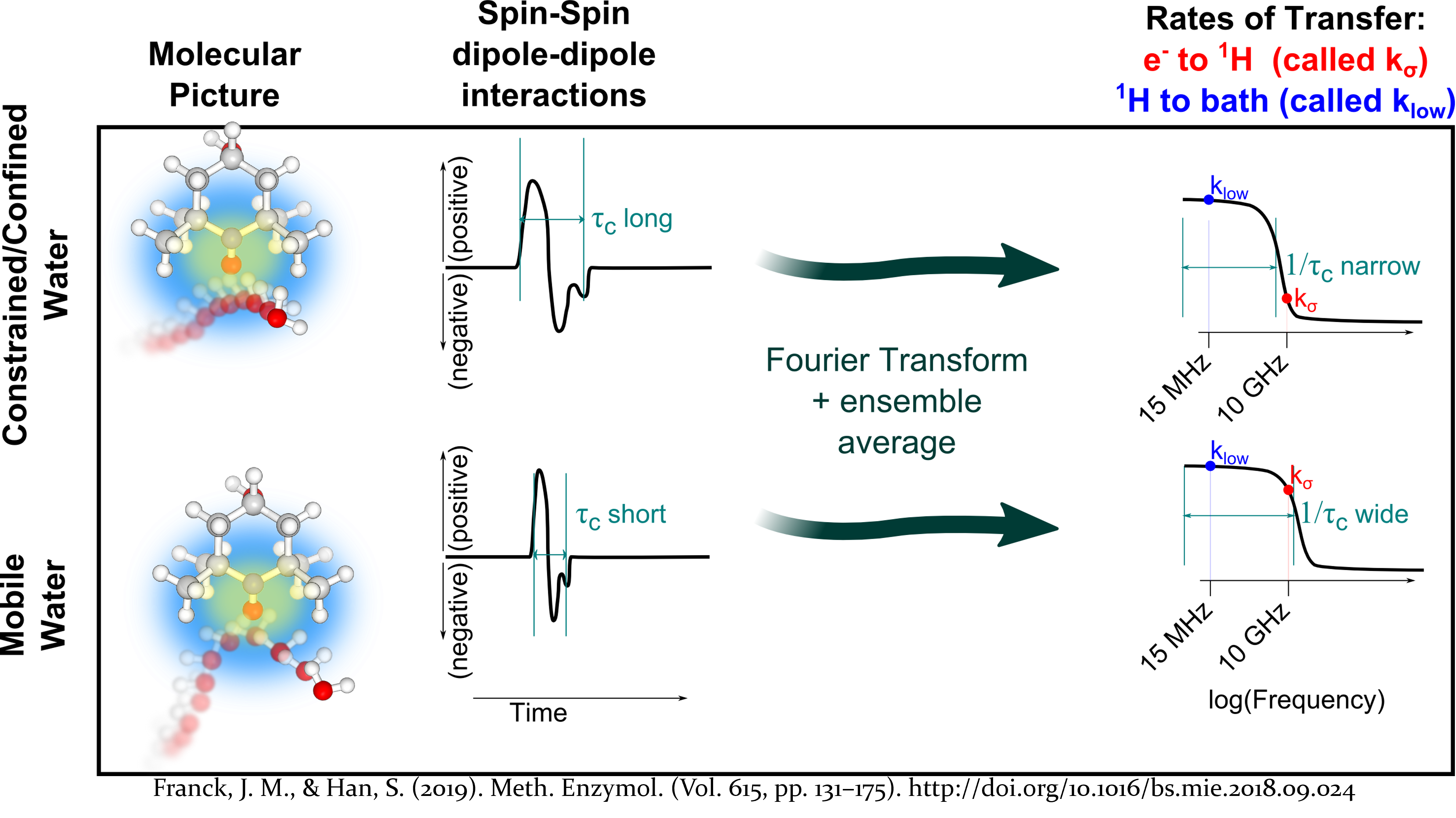The forefront of modern chemistry involves understanding how very large molecules react and move. During such motions, hundreds or even thousands of water molecules rearrange and change their properties. The resulting change in properties can contribute enormous amounts of chemical energy to a reaction. Yet, our ability to probe these changes remains surprisingly limited.
Magnetic Resonance offers a surprisingly fertile ground for developing entirely new spectroscopic measurements, because particle spins engage in interesting and complex quantum mechanics.
In one example, when nanoscale aggregates isolate small pockets of water, the resulting confinement alters the hydrogen bonding network. Meanwhile, the confinement also slows down the motion of the water molecules. These effects result in a change (respectively) of the electron cloud density and of the lifetime of the spin states, and magnetic resonance can measure both of these. We have developed a measurement that reads out the correlation between the hydrogen bonding strength and the rotational motion in confined water pools. By measuring this correlation as a function of the size of the water pool, we’ve identified a distinct inflection point at a couple nanometers at which the water matrix changes dramatically.
In another example, we can employ mutagenesis to attach a spin label on the surface of proteins, which are involved in cancer signaling pathways (KRas), as well as transmembrane proton pumps (proteorhodopsin). Mutagenesis allows us to create a set of samples that are primed for measurement of water at a series of different sites. We employ specialized measurements to watch how the translational diffusivity of the water changes as we move from site to site along the surface.
Research in the Franck lab is highly interdisciplinary, but also extremely accessible to students from a variety of backgrounds. We employ a mix of chemical physics, biochemistry, analytical chemistry, and synthetic tools in order to develop unorthodox spectroscopic techniques that investigate how water interacts with the surfaces of proteins and soft materials. The Franck lab is looking for talented graduate students and undergraduate researchers in Fall 2023.

